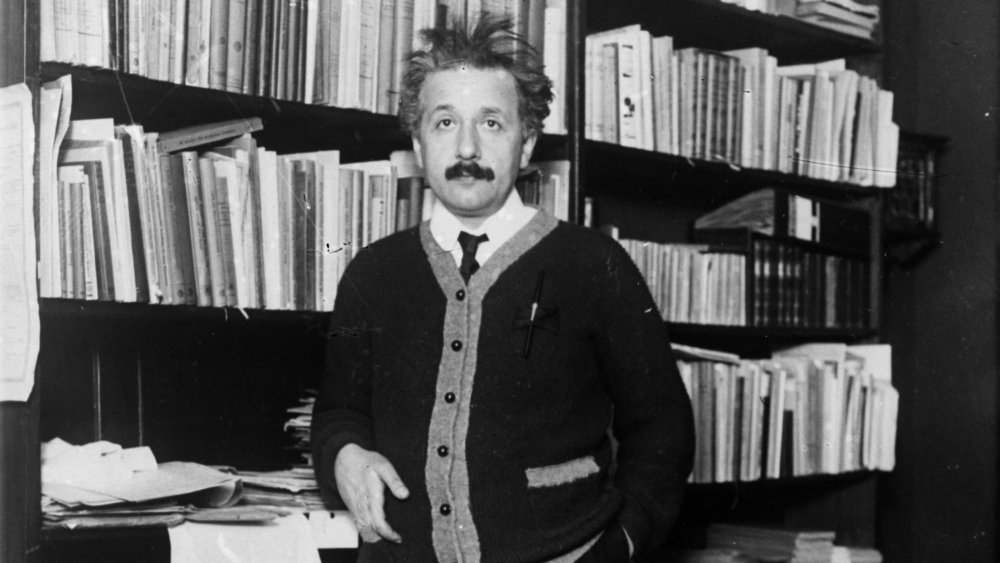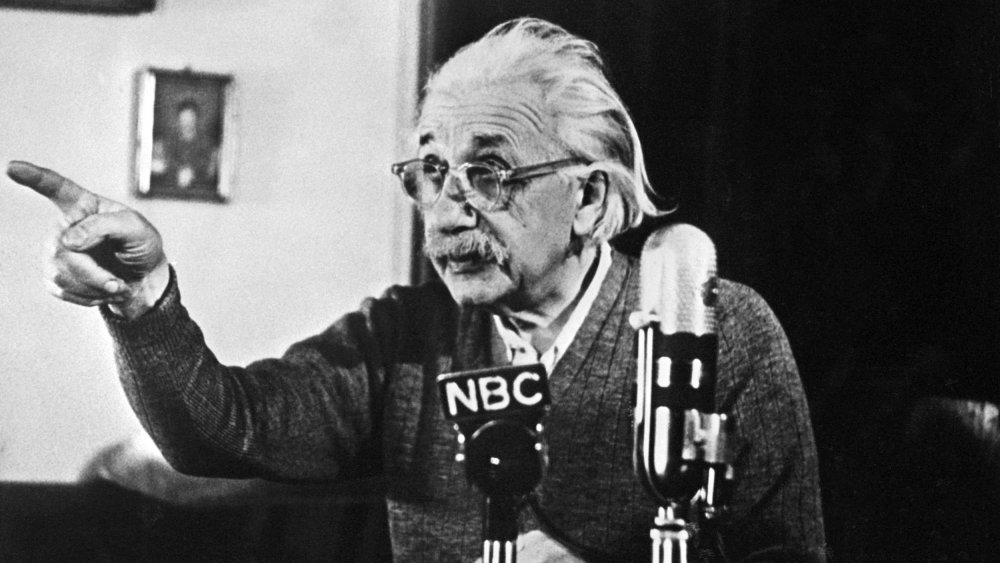The Real Reason The FBI Spied On Einstein
"Spy" is such a harsh word, especially when we're talking about domestic national affairs. The theory is that the Central Intelligence Agency, or CIA, does the spying, particularly overseas, but that means collecting and analyzing information. Or so they say. On our shores, the Federal Bureau of Investigation, or FBI, doesn't spy; it investigates. Also arrests, which the CIA doesn't do.
Seen from one perspective, then, maybe you can make a case for the FBI investigating Albert Einstein, certified genius. He came to the U.S. from Germany in 1933, as History tells us, just as Hitler was rising to power. Biography tells us that Einstein was targeted for death before leaving Germany for Princeton, his work denounced back home as "Jewish physics." Was he really what he appeared to be? He was — and so much more. He'd already been awarded the Nobel Prize in Physics in 1921, and as early as 1905 had proposed his special theory of relativity.
The FBI tapped his phone and searched his trash
J. Edgar Hoover, the first director of the FBI, was a man in love with power. Possibly also in love with his country. That's probably how he'd describe it. Since his death in 1972 (while still in office) it's become clear that Hoover was not shy about abusing his authority in a war against "subversives," especially Communists, according to Biography. Illegal wiretaps, burglaries, and other nefarious means were used to compile dossiers on anyone who somehow attracted Hoover's disapproving eye. Including Einstein.
Not because Einstein was a political figure. He wasn't a saint. He was a physicist — perhaps the greatest the world has ever known; certainly globally respected (except in Germany). But he did have opinions. Einstein was also known to have left-leaning political opinions (no crime there); tended to be a pacifist (again, no crime); believed very strongly in civil rights, including membership in the NAACP. His phone was tapped, his mail was opened, his trash was examined. Legally? Probably not. Certainly fruitlessly, unless you count the size of his FBI file: reportedly 1,800 pages.
Einstein was granted permanent residency in the U.S. in 1935 and became a citizen in 1940; he never returned to Germany. He died in 1955. Hoover outlived him — but he certainly didn't outshine Einstein.

